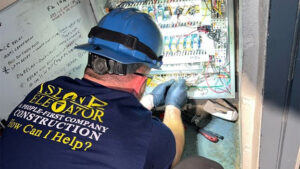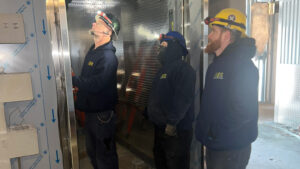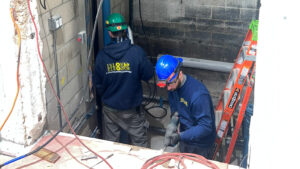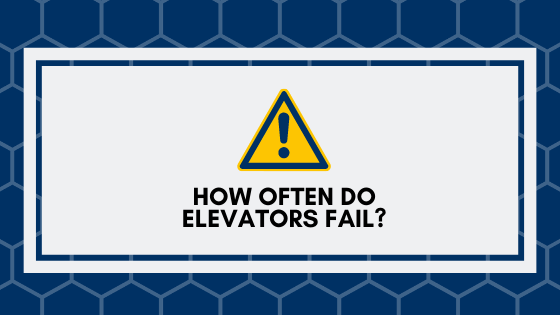
If given a installed elevator experiences an average of 0.4 mantraps per year, the probability of an entrapment during any single trip is then 0.4/400,000 = 0,01% annually.

Elevators have historically been safer than stairs, escalators, and even bathtubs. However, whenever there is an incident pertaining to elevator incidents, it tends to get media spotlight, making it appear like they are more dangerous than other inside forms of transportation.
If you are a residential or commercial property owner who has poorly maintained or broken down elevators, your residents are going to complain, and they will make sure that you are aware of it. An improperly working elevator can dramatically affect the daily work life and satisfaction of residents. This puts attention on the importance of proper and regular maintenance of your elevator system to ensure they work properly and efficiently at all times — before they become a long-standing issue that can affect your bottom line. Regular maintenance will ensure that small problems are remediated before they become bigger, expensive issues.
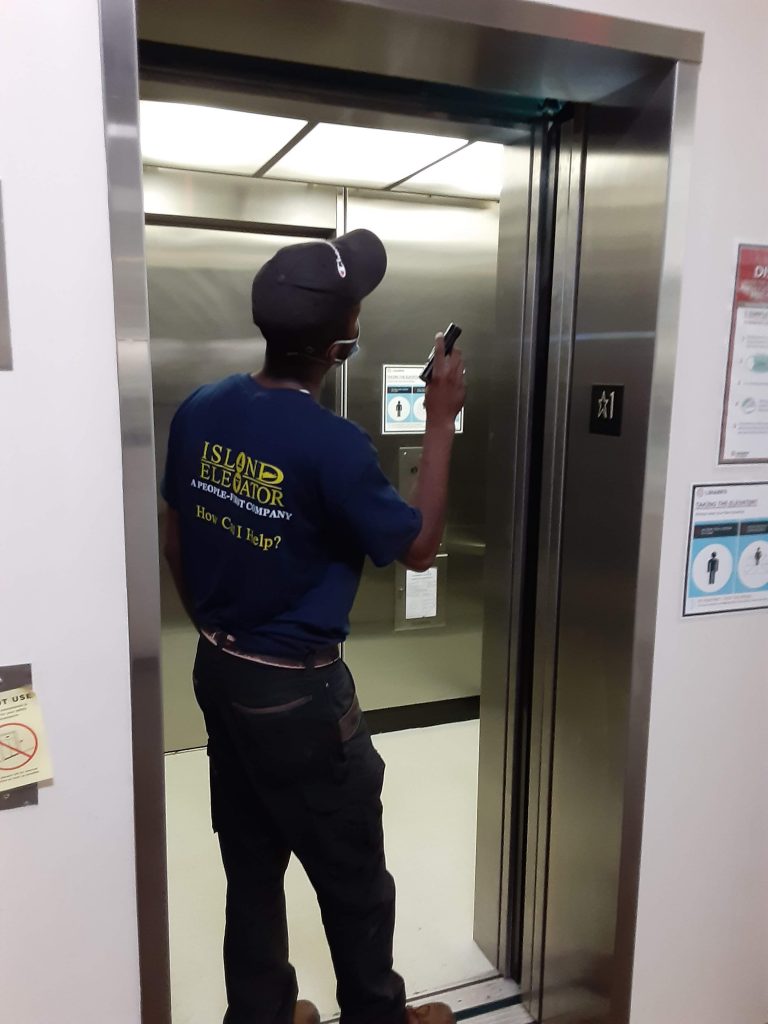
The Truth About Elevator Failure
Elevators have become synonymous with any modern resident building or commercial space – in some jurisdictions, they are required to ensure that those with physical disabilities can travel in and out of the facility.
However, the prevalence of the modern elevator has not done enough to stop falsehoods. Here are some of the more unfortunate safety myths surrounding elevators.
Myth 1. Elevator riders can cause an elevator to fall if they all jump at once. The elevator uses a system of metal cables and cables that can withstand the weight of a car.
Myth 2. The elevator doors can open inbetween floors. Modern-day elevators in the United States are designed in such a way that they cannot be opened independently. They open by interacting with the external stationary door that opens up to a floor.
Myth 3. If stuck, click on all of the buttons on the panel for the elevator to work. If you happen to be stuck in an elevator, your best bet is to contact the dispatcher. Then it’s mostly about waiting. Most modern elevators in residential and commercial areas will also have an emergency telephone line written or engraved on the panel.
Myth 4. You can free fall in an elevator. The only occurrence of an elevator free falling was in 1945 due to a snapped cable. In this scenario, a B25 bomber crashed into the Empire State Building in New York City, severing several ties. The elevator car on the 75th floor started to free fall, with a woman in it. Thankfully, she survived due to more than 1000 feet of coiled cable at the base of the building that acted as a cushion to lessen the impact.
When properly maintained and looked after, elevators can last several decades. Elevators can have routine partial modernization to extend their lifetime to 50 years or more. Proper modernization can make elevators more aesthetically pleasing and energy-efficient.

Why Do Elevators Fail?
Elevators are compound machines – they are made of many different parts that are designed with even smaller, intricate parts. Elevator breakdowns occur due to a lack of service. Like any compound machine, the components can deteriorate over time, causing mechanical and electrical issues. Proper preventative maintenance includes replacing and servicing components before they reach a point of failure. By being proactive with elevator maintenance and modernization, property owners can remediate most issues.
What many elevator maintenance companies are finding is that there is a lack of proper preventative maintenance. While a lack of maintenance can translate to greater profits in the short term, it is largely shortsighted — it ignores the cost of breakdowns, not to mention that it shows a lack of caring for your residents and patrons.
Some of the main causes of elevator functions that we are seeing in residential and commercial spaces include:
- Misuse. Vandalism, overloading, smoking, and obnoxious behavior can run down the mechanical components of an elevator. For residential and commercial property owners, it’s important to set up warning signs against such behaviors or take it a step further and install CCTV cameras.
- The age of the elevator. As mentioned, most elevators can last several decades when properly taken care of. However, if you are a commercial property owner or landlord who is adopting a new piece of property, you may not know the maintenance record and history of the elevator system within the infrastructure. You can potentially have a property with an out-of-date system that may need immediate repair or servicing. While expensive, getting a brand-new system installed may save you money in the long term on increased energy bills due to inefficient systems.
- Improper maintenance. Not all contractors are the same — some are going to be more certified and experienced. It is important that when you shop for a contractor to service and maintain your elevator, that you work with a company that has a track record of success in a variety of elevator systems. Trying to save money by foregoing inspections is always a bad idea. Remember that elevators are complex machines with many moving parts and only require a single malfunction to bring down the whole system.

Resident and Commercial Elevator Services
When selecting a contractor, you must select a contractor that focuses on protective practices and training, especially in the field of de-energizing and locking out electrical circuits when elevators are out of service or being actively repaired. Your contractor also needs to have an adequate maintenance and inspection program that will work with your schedule.
Typically it is required that your elevator is inspected once a year. Once the elevator passes the inspection, the property owner will be issued a ticket explaining what has been done, deficiencies that have been found, and what course of action has been taken. Keep in mind that part of the maintenance process means that the elevator machine room properly locks so no one without proper authorization can enter it. Regular maintenance will ensure that the elevator units are in working condition at all times.

Island Elevator is Ready to Help!
Island Elevator is here to help you understand all facets of your Elevator Repair, Maintenance, & Modernization costs in the new year. Our team is here to help ensure your home and business vertical transportation equipment receive the regularly scheduled maintenance necessary to help you avoid a major catastrophe, reduce the possibility of a costly repair, and ensure the safety of your passengers, tenants, and family.

